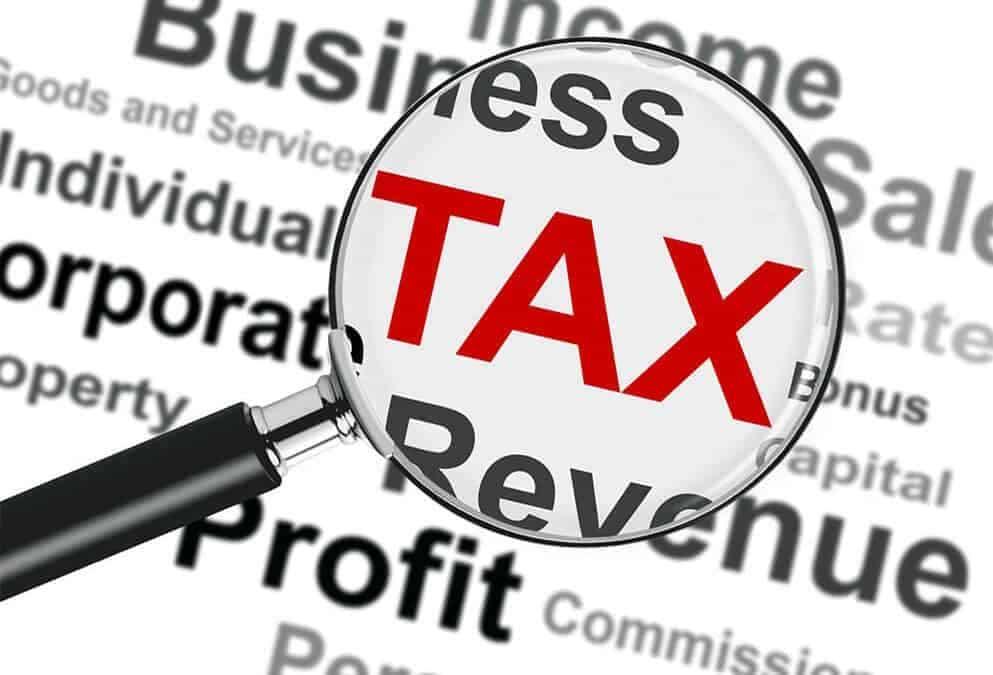Joe Biden's Tax Plan - 8 Proposed Changes Impacting Real Estate Investors
With COVID-19 dominating much of this year’s news cycle, it’s easy to forget that 2020 is an election year. As November draws near, the political ads have ramped up. The candidates make their final pitch to the American voters, with very different visions for the future.
President Trump is undoubtedly a controversial character, but his tax code has been favorable towards real estate investors coming from a real estate background himself. The very nature of political discourse is contentious. Still, it is crucial to understand Joe Biden's proposed tax changes if elected, and their impact on the real estate community, ceteris paribus.
What is Joe Biden Proposing?
Joe Biden’s highly progressive proposed tax changes would objectively raise taxes by nearly $3.5 trillion over the next decade. Ultimately, the impact would be distributed across the broader tax base. Still, investors, and uniquely real estate investors, would shoulder an inequitable burden.
There are 8 proposed changes real estate investors should keep an eye on:
- Elimination of Bonus/Accelerated Depreciation
- Elimination of Deferred Capital Gains Taxes from 1031 Transactions
- Elimination of the Step-Up in Basis
- Elimination of the $25,000 Exemption from Passive Loss Rules for Rental Losses
- Phasing Out the Qualified Business Income (QBI) Deduction & Capping Itemized Deductions
- Increasing Capital Gains Uniformly & Taxing Capital Gains as Ordinary Income for Taxpayers with Over $1 Million in Income
- Elimination of the Conservation Easement Tax Benefit
- Subjecting Individuals with Income Greater than $400,000 to the Social Security Tax
We'll dive into these more in detail below. First, let's start by touching on the current tax environment for real estate investors.
The State of Today’s Tax Policy for Real Estate Investors
Since the passing of the Tax Cuts & Jobs Act of 2017 (TCJA), real estate investors have enjoyed a prolonged period of relatively favorable tax policy.
Major market disruptions from the coronavirus pandemic necessitated a rapid response from the federal government. Several tax policies through the more recent CARES Act have also supported the real estate industry.
Most notably, bonus depreciation and net operating losses can be carried back 5-years, allowing investors to offset income from profitable years and potentially receive a refund. Additionally, the change in the characterization of qualified improvement property allowed for leasehold improvements to qualify for bonus depreciation.
Those provisions aren't open-ended, though, and Congress has already proposed eliminating 5-year net operating loss carry-back.
Why Should Real Estate Investors Care?
The disciplines of real estate investment and the proper navigation of tax code are not indistinguishable. In addition to working closely with a trusted CPA, every investor should have a working knowledge of tax policy and how changes to tax code could impact investment underwriting and an asset's profitability.
Although changes haven’t been made, by planning for and talking about proposed modifications, you allow yourself the freedom of maneuver to remain proactive.
Investors should be using the time now to correctly posture their real estate investments and minimize their overall tax exposure.
Joe Biden’s Tax Plan – 8 Proposed Changes Affecting Real Estate Investors
- Elimination of Bonus/Accelerated Depreciation: When trying to stabilize an asset and suck up the acquisition costs, bonus and accelerated deprecation help get an investment over the proverbial hump. The elimination of bonus depreciation would substantially hinder real estate investment.
- Elimination of 1031 Transactions: By engaging in a like-kind or 1031 exchange, investors can defer capital gains taxes on the transaction. Eliminating 1031 transactions would deter additional investment and require investors to pay full capital gains taxes.
- Elimination of the Step-Up Basis: Currently, when a property owner dies and transfers an asset to their heirs, the cost basis of that asset is stepped up from the cost of acquisition to the value at the time of transfer. Eliminating the step-up in basis would force the realization of an assets appreciated value and result in a capital gains tax bill.
- Elimination of the $25,000 Exemption from Passive Loss Rules for Rental Losses: IRS rules allow investors who make an adjusted gross income below a certain threshold to deduct up to $25,000 in real estate losses. Elimination of this benefit would impact the least capitalized investors.
- Phasing Out the Qualified Business Income (QBI) Deduction & Capping Itemized Deductions: Currently, some revenues through pass-through entities are partially deductible against income. Additionally, Biden’s proposal would cap the amount individuals could claim as itemized deductions at 28% of value and place even further confines on higher-income individuals.
- Increasing Capital Gains Uniformly & Taxing Capital Gains as Ordinary Income for Taxpayers with Over $1 million in Income: Biden has proposed raising the capital gains tax across the board, in addition to placing further burdens on higher earners. Investors with income greater than $1 million could see capital gains taxes increase to nearly 40%.
- Elimination of the Conservation Easement Tax Benefit: Under a conservation easement, a property owner gives up the right to make specific changes to preserve the land for future generations. When criteria are met, the property owner will qualify for a tax benefit commensurate with property value reduction.
- Subjecting Individuals with Income Greater than $400,000 to the Social Security Tax: Currently, Social Security is funded through a 12.4% payroll tax, up to a taxable maximum of $137,700. The new proposal would tax income higher than $400,000, with the possibility of also adding the social security tax to existing net investment income taxes.
The Process from Proposed Policy to Tax Law
You’re probably asking, “how much time do I have before these proposed changes would take effect?” Just because a new policy is proposed does not necessarily mean it will become law.
Tax legislation generally originates with the President, who codifies their recommendations for Congress, based on their policy areas of emphasis. Once drafted, the proposed policy makes its way through the House Ways and Means Committee and Senate Finance Committee before returning to the President’s desk for signature.
The legislative bodies that shape the tax code have hundreds of previously proposed tax provisions waiting to be enacted into law. Some of candidate Joe Biden’s proposals are not on the list, which means they may not be passed in the next four years. The likelihood of a provision being written into law is much higher once added to the list.
Usually, tax policy is not administered retroactively; it is effective from the point of the proposal. A President elect's first budget proposal is customarily unveiled in June, giving real estate investors less than 9 months to take necessary mitigating actions.
Real Estate Strategy Matters
A strategic real estate advisor is an indispensable asset in helping to position your real estate portfolio and ultimately reduce your tax exposure.
Plan on divesting highly appreciated assets over the next 3-5 years? Your window to do so tactfully may be closing.
The U.S. tax code is complex. Each strategy is multifaceted, has a distinct but often convoluted set of rules to follow, and is rife with penalties if not adhered to correctly.
The material provided is for information purposes only. You should consult with a licensed tax attorney or certified public accountant concerning your specific needs for tax or financial advice.
If you have questions about your real estate portfolio or need help crafting an insulated and resistant investment strategy, let's chat.



